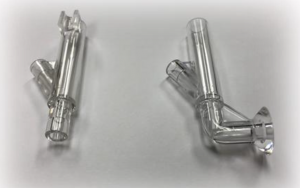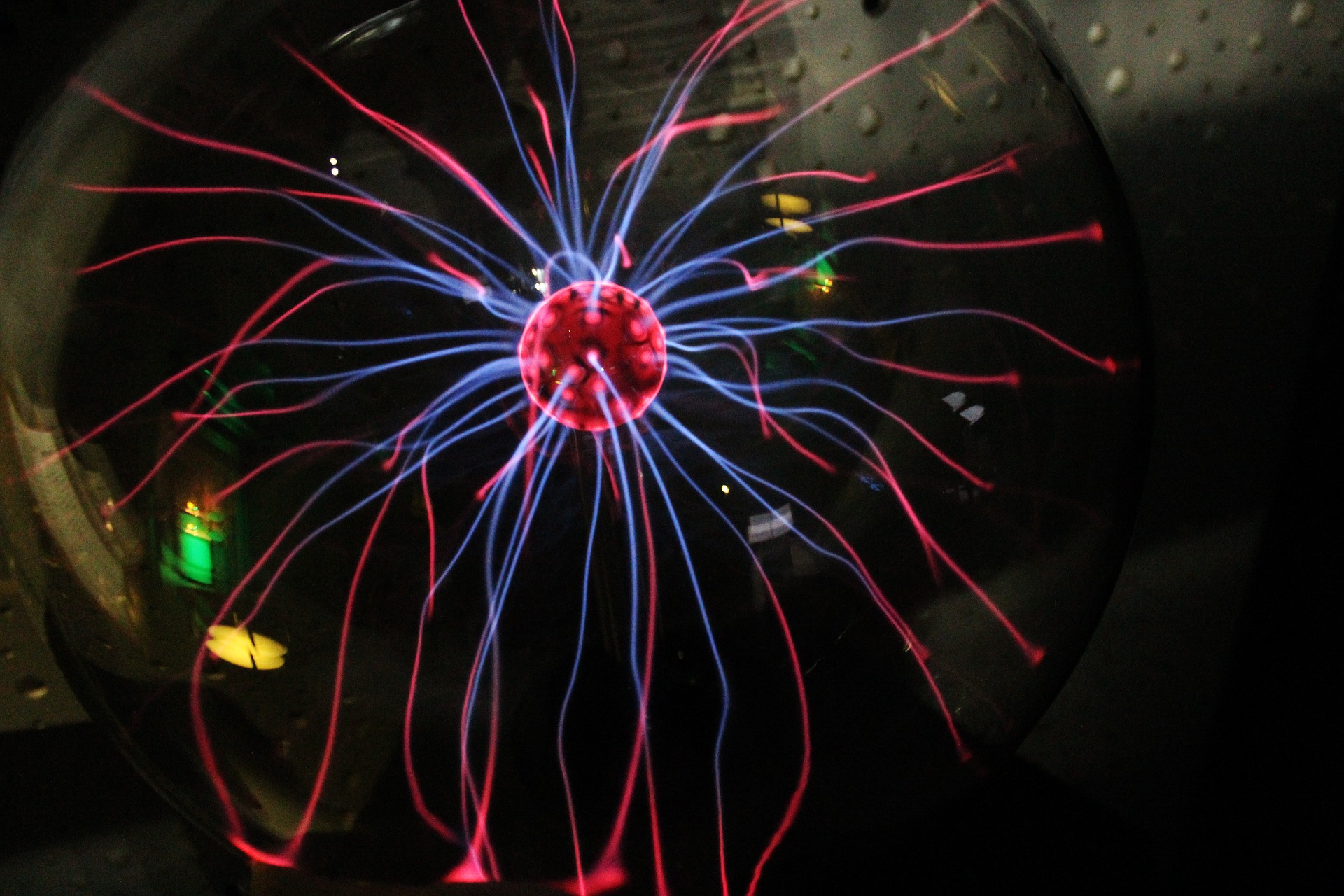The Herrick Company, Inc., through its subsidiary Herrick Medical, LLC, and affiliates, including NDLX Health Sciences, LLC, Electro Cellular Healthcare Solutions, LLC, and AILNH, LLC invests in the health sciences, including but not limited to biotechnology and medical device companies.
Herrick Medical, LLC Executives and Advisory Board:
Mr. Norton Herrick, Chairman/CEO and Founder, has assembled an international group of highly accomplished clinicians, researchers and MedTech business people. Mr. Herrick has been funding medical research and related product development for over 30 years and as with all of his endeavors, he takes a hands-on leadership role in each research and development project.
David Saloff, President, one of the pioneers of PEMF technology and founder/CEO of 3 medical device/medical technology companies, two of which were taken public and the third sold to a larger public medical device company.
Miles Herrick, Vice President, Research and Development. He assists with management of our human clinical studies, medical device product development, and aging research.
Rochelle Buffenstein, Ph.D., Research Professor at the University of Illinois at Chicago and previously Senior Principal Investigator at Calico, an Alphabet, Inc. (Google) funded aging research biotech, a comparative biologist and leading expert on the biology of mole rats, whose research focuses on using the exceptionally long-lived, cancer resilient naked mole-rat and other rodent species primarily as to mechanisms facilitating resistance to age-dependent chronic diseases such as cancer, diabetes, and heart disease.
Howard Cedar, Ph.D., Professor Emeritus in the Department of Developmental Biology and Cancer Research at Hebrew University, who is renowned for spearheading breakthroughs in the field of DNA methylation and cancer epigenetics. Dr. Cedar’s lab at Hebrew University Hadassah Hospital in Jerusalem, with funding from Mr. Herrick, developed and created the Grail Galleri (https://galleri.com) test, which is the first cancer screening blood test of its kind. The test screens for 50 different types of cancer using a single blood sample and can detect cancer at any stage, to varying degree. Beyond that work, Dr. Cedar has been awarded numerous times for his groundbreaking work:
- In 1999, Cedar was awarded the Israel Prize, for biology.
- In 2008, he was awarded the Wolf Prize in Medicine, jointly with Aharon Razin, “for their fundamental contributions to our understanding of the role of DNA methylation in the control of gene expression.”
- In 2009, he was awarded the EMET Prize for his work in cancer research.
- In 2011 he received the Canada Gairdner International Award, together with Aharon Razin for their “pioneering discoveries on DNA methylation and its role in gene expression.”
- In 2011 he received the Rothschild Prize in Biology
- In 2016 he received the Louisa Gross Horwitz Prize together with Aharon Razin and Gary Felsenfeld.
- In 2023, he was inducted into the National Academy of Sciences.
Vera Gorbunova, Ph.D., Co-Director of the Rochester Aging Research Center and endowed Professor of Biology. Dr. Gorbunova’s research focuses on age-related DNA repair, as well as the study of long-living species including Naked Mole Rats. In the Naked Mole Rat, Dr. Gorbunova has identified various proteins and molecules with longevity-promoting and anti-cancer properties.
Sean Hagberg, Ph.D., Clinical Assistant Professor at University of New Mexico, Department of Neurosurgery, who has an extensive background in the field of PEMF with more than 50 published papers, research projects and presentations.
Thomas Rando, MD, Ph.D, Director of the UCLA Broad Stem Cell Research Center, Professor of Neurology at UCLA, and former Director at the Stanford Center on Longevity. Dr. Rando’s research focuses on stem cells in aging and disease, as well as pathogenetic mechanisms and gene therapy for muscular dystrophies. His aging research has demonstrated that it is possible to stimulate old tissues to repair injuries as effectively as young tissues.
Linda S. Sher, MD, Professor of Clinical Surgery and Director of Clinical Research in the Division of Hepatobiliary Surgery and Abdominal Organ Transplantation at Keck School of Medicine of USC. Dr. Sher has participated in and overseen over 50 research projects and is currently very active in the development of the clinical and basic science research components of the USC Abdominal Organ Transplantation Program. Linda worked closely with Dr. Leonard Makowka, MD, Ph.D, the former Chairman of Surgery at Cedar Sinai Hospital in Los Angeles and one of the pioneers of organ transplant. She is a member of numerous prestigious societies including: International Liver Transplantation Society, American Society of Transplant Surgeons, American College of Surgeons, Present International Transplantation Society, and the American Association for the Study of Liver Diseases. She is also the HSC IRB Chief for the Division of Clinical Research at USC.
David Sinclair, Ph.D., A.O., Professor in the Department of Genetics and co-Director of the Paul F. Glenn Center for the Biology of Aging at Harvard Medical School. Dr. Sinclair’s research focuses on sirtuins, protein-modifying enzymes that respond to changing NAD+ levels and to caloric restriction (CR). The Sinclair lab was the first one to identify a role for NAD+ biosynthesis in regulation of lifespan and first showed that sirtuins are involved in CR in mammals.
Gary Small, MD, Chair of Psychiatry at Hackensack University Medical Center, Behavioral Health Physician in Chief for Hackensack Meridian Health, H. Hovnanian Family Foundation Chair, Professor of Psychiatry & Behavioral Health at Hackensack Meridian School of Medicine, previously Director of Geriatric Psychiatry at the Resnick UCLA Neuropsychiatric Hospital, who is a co-inventor of the first positron emission tomography (PET) scanning method that provides images in living people of Alzheimer’s disease abnormal brain proteins– amyloid plaques and tau tangles and who has extensively tested compounds that may benefit cognitive abilities and possibly delay the onset of Alzheimer’s disease symptoms.
Eric Verdin, MD, President and Chief Executive Officer, Professor at the Buck Institute for Research on Aging. Dr. Verdin’s research focuses on aging and how it relates to the immune system, specifically how both of these fields are regulated by nutrition. The Verdin lab has demonstrated how changes in the relative abundance of key cellular metabolites such as NAD+, acetylcoenzyme A, and the ketone body beta-hydroxybutyrate fluctuate under different nutritional conditions (obesity, calorie restriction, fasting, time-restricted feeding, ketogenic diet) and how this influences immune responses. They are working on key enzymes regulated by these metabolites. These include sirtuins (NAD+), histone acetyltransferases (acetylcoenzyme A), and histone deacetylases (HDACs).
Saul Villeda, Ph.D., Assistant Professor in the Department of Anatomy at UCSF. Dr. Villeda’s research focuses on the mechanisms underlying aging and neurodegeneration. He is an expert in a variety of different research methods including heterochronic parabiosis and transgenic and knockout mouse lines.
Additional Consultants and CROs include:
Charles River Laboratories, one of the world’s leading CROs in providing developmental support for novel drugs, basic research, and discovery. With 100 sites around the globe and more than 20,000 employees, Charles River strategically coordinates worldwide resources and applies multidisciplinary perspectives in product development. In 2021, they had supported the development of 86% of the novel FDA-approved drugs.
David Muesham, who received his Ph.D. in Neurophysiology from the University at Bologna, has authored papers over the last 25 years on biophysical mechanisms of PEMF bioeffects, and is also Senior Biophysicist at VID Art Science, National Institute of Biosystems and Biostructure, Italy.
The Epigenetic Clock Development Foundation (Clock Foundation,) a UCLA spin-out and non-profit that is speeding the availability of treatments that prolong health and life expectancy. They are focused especially on the use of methylation analyses, epigenetic aging clocks, and adaptive clinical trials. Their director and SAB chair is Dr. Steve Horvath, a Professor of Human Genetics & Biostatistics at UCLA, who is most well-known for his Horvath aging clock, which is a highly accurate molecular biomarker of aging, and for developing weighted correlation network analysis.
Ideahouse and Company, a California-based Design House consisting of a team of designers that collectively have over 60 years of product development experience, with formal education in every field from industrial design, engineering and business management, boasting accomplishments such as a collective 4 CES design awards, 25 US patents, appearances on Shark Tank, and multiple successful Kickstarter campaigns.
Inventhys, a France- based worldwide consulting engineering consortium with some of the best engineers and designers in the world that assists companies in innovation, development, production, and testing of advanced devices.
The Jackson Laboratory (Jax,) a world leader in mammalian genetics and human genomics research. Founded in 1929 in Bar Harbor, Maine, The Jackson Laboratory is an independent, non-profit research institution with locations in Maine, Connecticut, California and Shanghai. With more than 2,300 employees, JAX provides a unique bridge across experimental, translational and clinical contexts. More than 70 multi-disciplinary research faculty collaborate together to integrate mouse genetics and human genomics to understand the underlying causes of human health and disease. JAX® Mice are the highest quality and most-published mouse models in the world.
Kristi Salveson, Clinical Research Coordinator. A registered nurse and clinical nurse supervisor working at Morristown Medical Center with just a few classes left before completing her doctorate. She is responsible for coordinating our human clinical studies, specifically as to monitoring, data validation, and regulatory maintenance.
MCRA, a leading global CRO & advisory firm with deep industry experience in, clinical research, global regulatory matters (e.g. FDA), reimbursement, quality assurance, healthcare compliance, and cybersecurity; the MCRA team has more than 150 years of combined expertise in clinical research, clinical reimbursement, regulatory and compliance; MCRA team members that we work closely with include Tim Marjinen, previously Assistant Director of the Neurostimulation-Neurology Devices Team at the FDA, and Fernando Aguel, previously Assistant Division Director for the Circulatory Support Devices Team at the FDA.
Nathan Iyer, MSEE from Florida Atlantic University and MBA from Santa Clara University, one of the world’s leading Radio-Frequency (RF) engineers with over 20 years experience developing digital signal processor (DSP), Radio Frequency (RF) and wireless products, who recently developed FPGA-based Software Defined Radios for cable TV backhaul, authored popular open source RF Design software QuickSmith, co-founded Ivivi Technologies, a publicly traded RF medical device company (Currently held by PE.)
PsychoGenics, Inc, founded in 1999 as a contract research business based on high-capacity and high-quality testing with fast turnaround and delivery of results. Since their founding, they have performed tens of thousands of studies for hundreds of clients averaging 350 studies per year. Their team of talented scientists have developed innovative AI-driven drug discovery platforms and analytical tools leading to shared-risk partnerships and numerous drug candidates in clinical trials. They are most well-known for their cutting-edge translational approach to research, as well as for their ability to identify statistically relevant phenotypic changes that help our clients quantify the efficacy of their treatments before they move into the clinic.
Steven Weigand, M.Sc from the Technical University of Darmstadt, one of the world’s leading Radio-Frequency (RF) engineers, with over 20 years of experience with RF and microwave engineering with broad-spread expertise (radio-frequency, antenna, mixed-signal, digital) in chip development, as well as broad-level research and product development.
NDLX Health Sciences (NDLX) and Electro Cellular Healthcare Solutions (ECHS) were founded to develop technologies and techniques that can enhance endogenous regenerative processes with a focus on improving healthy aging and longevity. The companies collaborate with experts and institutions to ultimately move the most effective technologies and techniques into the clinic.
NDLX and ECHS are currently engaged in studies looking at several areas including aging, Alzheimer’s Dementia, and heart disease. These studies involve the use of pulsed electromagnetic field (PEMF) technology, the liver, pregnancy, and long-lived animal species. NDLX is also underway with a study at USC involving young, healthy human liver donors, as well as aging and cancer studies involving mouse and cell models with The Jackson Laboratory, Charles River, and Psychogenics, Inc. ECHS has completed studies at UNM involving neuronal cell models and has commenced two human clinical studies: one with patients being treated following a heart attack at USC Keck Hospital and the other with patients diagnosed with Alzheimer’s Dementia at hospitals within the Hackensack Meridian Health System in New Jersey. Two additional human clinical studies will commence shortly: one with patients being treated following a heart attack at Cedars-Sinai Hospital in Los Angeles and the other with patients diagnosed with Alzheimer’s Dementia at the University of Miami’s Comprehensive Center for Brain Health in Boca Raton, Florida.
AILNH, LLC has invented and developed a device platform (IVAEDTM) to address the problems associated with air getting introduced into IV lines. These include alarm fatigue, air embolisms and strokes resulting from PFO:

Alarm Fatigue: Both nurses and patients experience alarm fatigue. It takes nurses 10 or more minutes to remove air and turn off the alarm. Patient sleep, rest, and recovery is disrupted by alarms.
- Alarm Fatigue topped the ECRI 2017 Patient Safety List
- Alarm Fatigue and health IT woes were The Joint Commission’s #6 Patient Safety Goal for 2018
- Society of Technology in Anesthesia study showed 19 out of 20 hospitals ranked alarm fatigue as a top patient safety concern
- On January 31, 2019: The FDA issued a Safety Communication on the risk of Intravascular Air-in-Line and Air Embolism Risks Associated with Infusion Pumps, Fluid Warmers, and Rapid Infusers
Air Embolisms “Never Event Classification”: Patient death or serious injury associated with intravascular air embolism that occurs while being cared for in a health care setting is classified as a “never event.” As such, all costs (and liability) associated with an air embolism are not covered by CMS. There is also the belief that even small amounts of air that would not normally cause an air embolism may be responsible for a large number of undiagnosed ischemic strokes resulting from PFO’s in adults (about 25-30% have this condition). The cost to treat an air embolism was estimated by one major industry player (Braun) to be $57,000. Litigation and award costs can be in the $ millions.
Extensive engineering/bench testing has been conducted validating the effectiveness of IVAED to eliminate all air introduced into IV lines under all conditions. The annual global market for IV tube sets and pumps is over $40 billion. The cost of goods for our device “IVAEDTM” is about $0.01. Utility patents have been issued in the US, Europe, and Japan; design patents have been issued in the US, Europe, Japan, and Canada; further utility and design patent applications are pending worldwide.

By donation, Mr. Herrick has also funded Dr. Howard Cedar’s lab at Hebrew University Hadassah Hospital in Jerusalem. Dr. Cedar’s lab developed and created the Grail Galleri (https://galleri.com) test, which is the first cancer screening blood test of its kind. The test screens for 50 different types of cancer using a single blood sample and can detect cancer at any stage, to varying degree.


